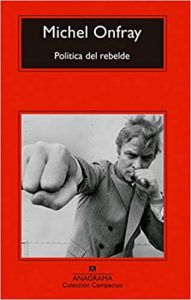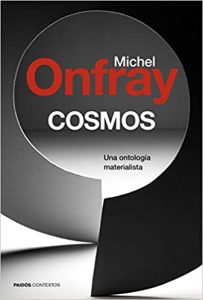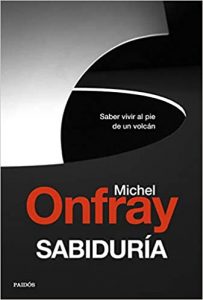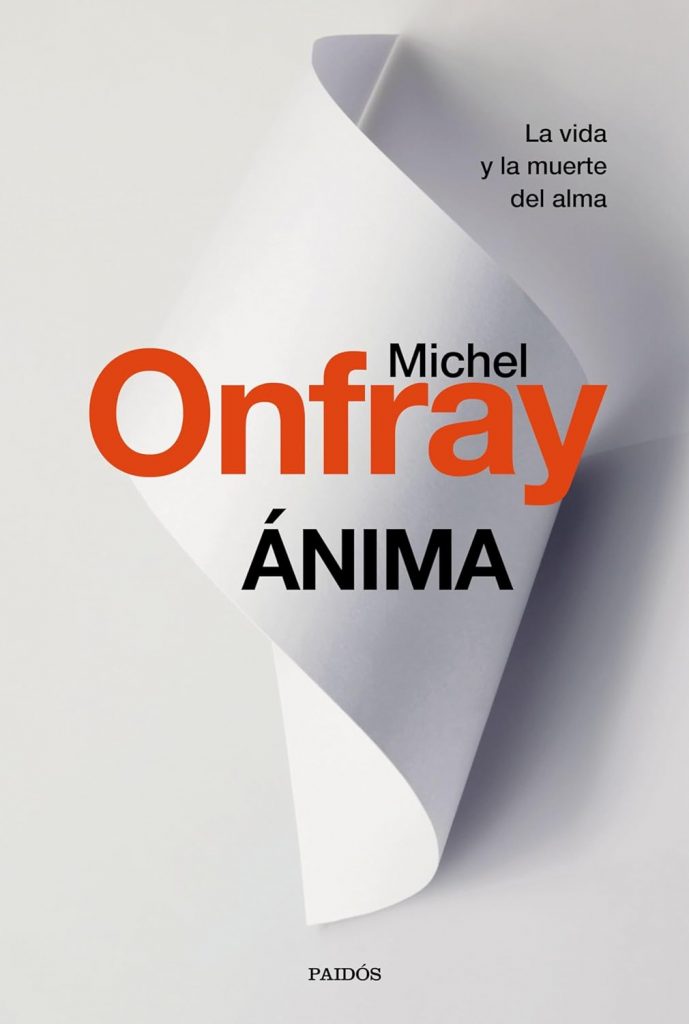French literature has in its Michels two great writers of today covering all sides of fiction and reflection. On the one hand Michel Houellebecq It dazzles us with its plots on the threshold of the novelistic. Secondly Michel Onfray does humanistic historiography to end up tracing the traces of our civilization as a story of incalculable intensity.
Except that trying to tie Onfray's work to some characteristic is daring if not insulting. Because this gifted with letters makes philosophy an endless tapestry of publications ranging from essays to the most methodical analytical thinking.
Perhaps there is a pretentious point in Onfray's bibliography, something buried under volumes named "Brief encyclopedia of the world«. But it is that his legacy already points to the referential of our century together with Chomsky and a few more. So without being overwhelmed or surrendered to the suicidal mission of knowing so much wisdom scattered in dozens of books, we can take a tour of the most essential and recognized of this French philosopher.
Top 3 recommended books by Michel Onfray
Rebel politics
These are strange times to address the issue of truest freedom. Beyond Orwellian tendencies, the arrival of the pandemic disrupts everything and one often does not know what to hold on to in terms of what remains of freedom, what can be constructed as a necessary evil and what will ultimately remain...
In this book Onfray exposes his libertarian political ideology, built on the basis of left-wing Nietzscheanism, among whose main figures Foucault, Derrida and Bourdieu stand out. From his childhood and adolescence experiences in the cheese factory of his hometown, he develops the image of capitalist society as the great Leviathan that insatiably engulfs the humanity of human beings, and presents, on the model of the Dantean hell, that of our current world, with its cohort of exploited, marginalized, vagabonds, madmen, prostitutes, sick, old, criminals, political refugees, immigrants , etc., distributed in the different circles of the Underworld.
Then he exposes the principles of his social utopia on the basis of philosophical hedonism, which is defended in book after book and whose maxim is "Enjoy and make you enjoy." He proposes this project as the culmination of the May 68 movement and against any ideology of idealistic roots that invokes universal, absolute or transcendence concepts beyond death, to claim the rights of the body that suffers and enjoys in this world. That is why it distances itself from all the policies that lead to totalitarianism and suffering with an eye toward peace and happiness in a future that never comes. But he does not stop advocating the creative role of disobedience, resistance, insubordination and insurrection.
Cosmos: A materialistic ontology
Philosophy is above all looking at the starry sky and letting yourself be assaulted by so many doubts. Because the unapproachable wisdom, from where the clarifications could lie, the index of existence and even its errata, comes from that uninhabitable place for our body.
And yet, sometimes we sense that we might be able to know. The simple fact of reaching that unfounded premonition but with a semblance of certainty makes our skin crawl and convinces us that everything can have a meaning, a script. Onfray is in charge of recovering ideas from that sensation, he acts as translator and confessor, as a healer with a placebo brought from the alchemy of our essential cells, the neurons.
This is the starting point of this book, in which Michel Onfray It proposes us to connect with a philosophical meditation in direct contact with the cosmos. Contemplating the world, recovering the founding intuitions of time, life, nature, understanding its mysteries and the lessons it provides us. This is the ambition of this highly personal work, which links the Greek and pagan ideal of human wisdom in harmony with the world.
Wisdom: Knowing how to live at the foot of a volcano
It is true that in the end we can all manifest ourselves as Nostradamus who already knew that something tremendous was going to happen. In our flight forward during our passage through this world, like a priceless breath in the immensity of the cosmos, we have always known that we were passing through, that our planet had limits determined to be surpassed by our ambitions. Yes, it was known and that doesn't mean we should stop thinking about it, asking ourselves if we have any other option. A book with overtones of self-help in the face of catastrophe, to endure with dignity like the musicians of the Titanic...
How to behave in a civilization that threatens collapse? Reading the Romans whose philosophy is based on role models and not on confusing theories. This book answers very specific questions: how to use time? How to be firm in pain? Is it possible to age well? How to tame death? Should we have children? What does it mean to keep my word? What does it mean to love with love or friendship? Can we possess without being possessed? Should we worry about politics? What does nature teach us? What does a morality of honor look like?
For Michel Onfray, wisdom is to turn our gaze to Ancient Rome, as if we were watching a movie, and to witness the death of Pliny the Elder and the gladiatorial fights, to witness grandiose suicides and banquets of ridiculous philosophers, of sublime friendships. and murders that turn the tide. Live history and accompany Seneca and Cicero, Epictetus and Marco Aurelio. While waiting for catastrophe, you can always live like a Roman: that is, upright and straight.
Other recommended books by Michel Onfray
Anima: The life and death of the soul of Lascaux to transhumanism
The great virtue of the essays expressed by great thinkers of our days is that they are capable of approaching reality from a compendium of so many historical and humanistic focuses that everything ends up melting into a crucible that becomes manna, food for the wisdom of our condition and our civilization. Sometimes detaching ourselves from the glorious sensation of humanity to transform ourselves into what we are, beings of passage.
According to Michel Onfray, a materialist philosopher read throughout the world, the soul is, simply, what has made human life human or, rather, the meditation on our finitude that we have been able to express in our culture. Writing the history of the soul, and intertwining it with the evolution of our species, is the (successful) bet of this admirable and surprising volume.
Moving with carefree ingenuity between historical, philosophical, anthropological and technological nuances, Onfray traces a journey from the dawn of man to tomorrow: to a world completely redesigned by artificial intelligence with projects to implant life beyond Earth.
As often happens, the history is written of that which no longer exists or is about to disappear. The current transformation of the immaterial soul to the digital soul that we witness between ecstasy and impotence confronts us with the possibility of an inevitably dehumanized future: an ultraplanetary civilization that will reify (and commodify) everything, and will replace - the only substitution of the that it is worth worrying about, according to Onfray—the era of traditional civilizations, limited in time and space.




